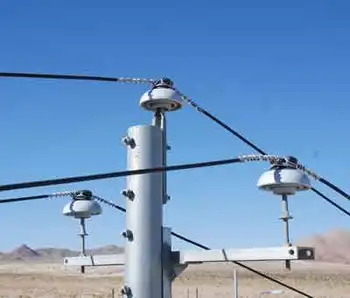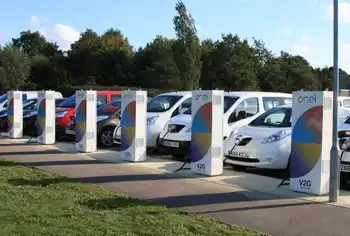Income Graduated Fixed Charge aligns CPUC billing with utility fixed costs, lowers usage rates, supports electrification, and shifts California investor-owned utilities' electric bills by income, with CARE and Climate Credit offsets for low-income households.
Key Points
A CPUC proposal: an income-based monthly fixed fee with lower usage rates to align costs and aid low-income customers.
✅ Income-tiered fixed fees: $0-$42; CARE: $14-$22, by utility territory
✅ Usage rates drop 16%-22% to support electrification and cost-reflective billing
✅ Lowest-income save ~$10-$20; some higher earners pay ~$10+ more monthly
The Public Advocates Office (PAO) for the California Public Utilities Commission (CPUC) has proposed adding a monthly income-based fixed charge on electric utility bills based on income level.
The rate change is designed to lower bills for the lowest-income residents while aligning billing more directly with utility costs.
PAO’s recommendation for the Income Graduated Fixed Charge places fees between $22 and $42 per month in the three major investor-owned utilities’ territories, including an SDG&E minimum charge debate under way, for customers not enrolled in the California Alternative Rates for Energy (CARE) program. As seen below, CARE customers would be charged between $14 per month and $22 a month, depending on income level and territory.
For households earning $50,000 or less per year, the fixed charge would be $0, but only if the California Climate Credit is applied to offset the fixed cost.
Meanwhile, usage-based electricity rates are lowered in the PAO proposal, part of major changes to electric bills statewide. Average rates would be reduced between 16% to 22% for the three major investor-owned utilities.
The lowest-income bracket of Californians is expected to save roughly $10 to $20 a month under the proposal, while middle-income customers may see costs rise by about $20 a month, even as lawmakers seek to overturn income-based charges in Sacramento.
“We anticipate the vast majority of low-income customers ($50,000 or less per year) will have their monthly bills decrease by $10 or more, and a small proportion of the highest income earners ($100,000+ per year) will see their monthly bills rise by $10 or more,” said the PAO.
The charges are an effort to help suppress ever-increasing electricity generation and transmission rates, which are among the highest in the country, with soaring electricity prices reported across California. Rates are expected to rise sharply as wildfire mitigation efforts are implemented by the utilities found at fault for their origin.
“We are very concerned. However, we do not see the increases stopping at this point,” Linda Serizawa, deputy director for energy, PAO, told pv magazine. “We think the pace and scale of the [rate] increases is growing faster than we would have anticipated for several years now.”
Consumer advocates and regulators face calls for action on surging electricity bills across the state.
The proposed changes are also meant to more directly couple billing with the fixed charges that utilities incur, as California considers revamping electricity rates to clean the grid. For example, activities like power line maintenance, energy efficiency programs, and wildfire prevention are not expected to vary with usage, so these activities would be funded through a fixed charge.
Michael Campbell of the PAO’s customer programs team, and leader of the proposed program, likened paying for grid enhancements and other social programs with utility rate increases to “paying for food stamps by taxing food.” Instead, a fixed charge would cover these costs.
PAO said the move to lower rates for usage should help encourage electrification as California moves to replace heating and cooling, appliances, and gas combustion cars with electrified counterparts. In addition, lower rates mean the cost burden of running these devices is improved.
Related News












